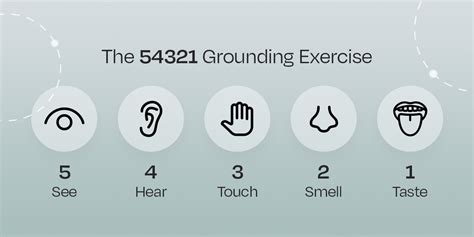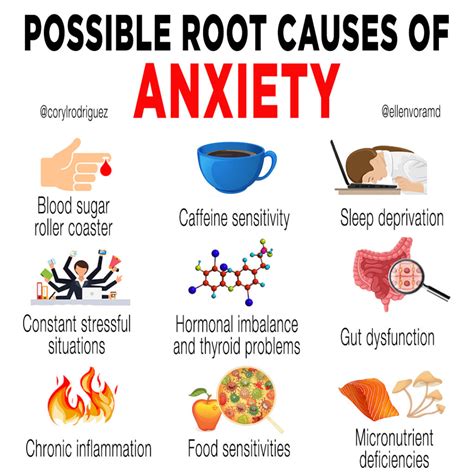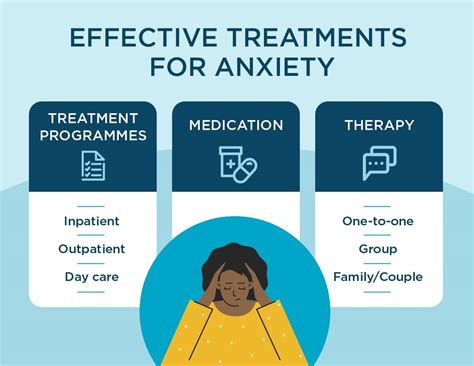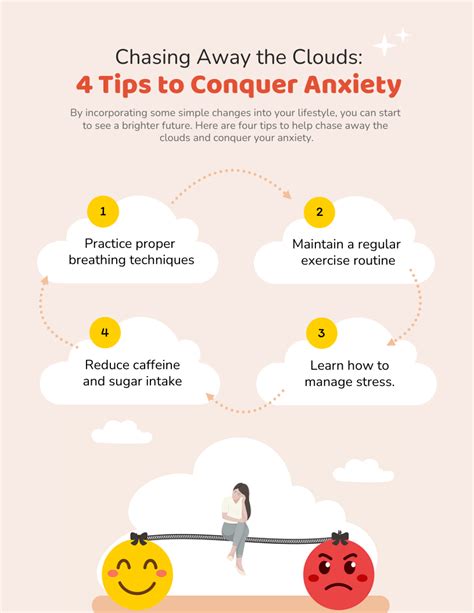Intro
Stop anxiety thoughts with proven techniques. Manage anxiety attacks, calm your mind, and overcome obsessive thinking with effective strategies and mindfulness exercises.
Anxiety is a common mental health issue that affects millions of people worldwide. It can manifest in various forms, including generalized anxiety disorder, panic disorder, social anxiety disorder, and phobias. Anxiety can be debilitating, interfering with daily life, relationships, and overall well-being. The constant stream of anxious thoughts can be overwhelming, making it challenging to concentrate, sleep, and enjoy activities. Understanding the importance of managing anxiety is crucial for regaining control over one's life.
Anxiety can be triggered by various factors, including stress, trauma, genetics, and brain chemistry. When an individual experiences anxiety, their brain goes into overdrive, releasing stress hormones like cortisol and adrenaline. These hormones prepare the body for the "fight or flight" response, causing physical symptoms like rapid heartbeat, sweating, and trembling. Anxiety can also lead to negative thought patterns, such as catastrophic thinking, rumination, and self-doubt. Breaking free from these patterns is essential for overcoming anxiety.
Recognizing the signs and symptoms of anxiety is the first step towards seeking help. Common symptoms include excessive worry, fear, restlessness, irritability, and avoidance behaviors. If left untreated, anxiety can lead to depression, substance abuse, and other mental health issues. Fortunately, anxiety is treatable, and various therapies, techniques, and strategies can help individuals manage their symptoms and regain control over their lives. By understanding the causes, symptoms, and treatment options, individuals can take the first step towards a anxiety-free life.
Understanding Anxiety

Types of Anxiety
Anxiety can manifest in various forms, including: * Generalized anxiety disorder (GAD): excessive worry about everyday things * Panic disorder: recurring panic attacks * Social anxiety disorder: fear of social situations * Phobias: irrational fear of specific objects or situations * Post-traumatic stress disorder (PTSD): anxiety after a traumatic event Each type of anxiety requires a unique approach to treatment, and understanding the differences is crucial for effective management.Causes of Anxiety

Symptoms of Anxiety
Anxiety can manifest in various ways, including: * Physical symptoms: rapid heartbeat, sweating, trembling, or nausea * Emotional symptoms: fear, worry, irritability, or mood swings * Behavioral symptoms: avoidance behaviors, substance abuse, or social withdrawal * Cognitive symptoms: negative thinking, rumination, or self-doubt Recognizing the signs and symptoms of anxiety is crucial for seeking help and developing effective treatment plans.Treatment Options for Anxiety

Self-Help Strategies for Anxiety
In addition to professional treatment, individuals can use self-help strategies to manage their anxiety, including: * Keeping a journal: writing down thoughts and feelings * Practicing mindfulness: focusing on the present moment * Engaging in physical activity: regular exercise or yoga * Connecting with others: building a support network * Learning relaxation techniques: deep breathing or progressive muscle relaxation Self-help strategies can be used in conjunction with professional treatment to enhance overall well-being.Managing Anxiety Thoughts

Overcoming Anxiety
Overcoming anxiety requires a long-term commitment to treatment, self-care, and lifestyle changes. Individuals can: * Develop a treatment plan: working with a mental health professional * Practice self-care: engaging in activities that bring joy and relaxation * Make lifestyle changes: regular exercise, healthy diet, or stress management * Build a support network: connecting with others who experience anxiety * Learn to manage anxiety thoughts: using self-help strategies and relaxation techniquesConclusion and Next Steps

What are the most common symptoms of anxiety?
+The most common symptoms of anxiety include excessive worry, fear, restlessness, irritability, and avoidance behaviors.
How can I manage anxiety thoughts?
+Managing anxiety thoughts requires a combination of self-help strategies, relaxation techniques, and professional treatment. Individuals can learn to challenge negative thoughts, practice mindfulness, and use positive self-talk.
What are the most effective treatment options for anxiety?
+The most effective treatment options for anxiety include cognitive-behavioral therapy (CBT), medications, relaxation techniques, and lifestyle changes. A mental health professional can help individuals develop a personalized treatment plan.
Can anxiety be cured?
+Anxiety is a treatable mental health issue, and while it may not be "cured" in the classical sense, individuals can learn to manage their symptoms and regain control over their lives with the right treatment and support.
How can I find support for anxiety?
+Individuals can find support for anxiety by connecting with a mental health professional, joining a support group, or talking to friends and family members about their experiences.
